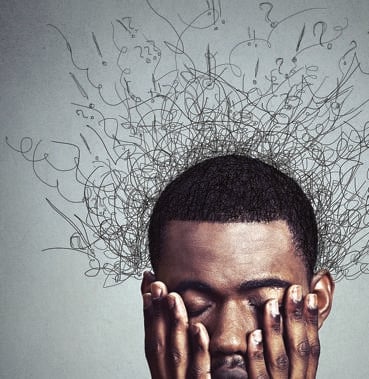
There is no health without mental health.
This statement was reiterated numerous times at last week’s World Innovation Summit for Health (Wish) in Doha, Qatar – first by leading surgeon Ara Darzi and then by Paul Farmer, chief executive of mental health charity Mind.
But it was when champion Olympic swimmer Michael Phelps narrated his struggle with depression at the height of his illustrious career that the penny dropped for many on the true scale and impact of mental health disorders.
Phelps is one in 322 million people around the world living with depression and 264 million living with anxiety disorders – according to estimate figures by the World Health Organisation last year.
“Things aren’t always what they seem,” the 33-year-old began.
“I’ve enjoyed great success, but in 2014 none of it mattered. I saw myself as worthless. Some stick their heads under the sand; I kept mine under water. As an athlete you are taught to be strong, to push through any obstacle. Sometimes in my depression I would push my head under the water and scream.”
According to the latest report by the Wish anxiety and depression forum, which was released at the summit, depression is the largest contributor to years of life lost to disability, while anxiety is the sixth.
Last month, the Lancet Commission on Global Mental Health revealed that mental disorders would cost the global economy $16 trillion by 2030.
The human impact is just as costly.
“People look at the fame and fortune, and don’t look at us as human beings. For years, I didn’t look at myself as a normal human being and I guess some of us feel trapped in a way. In sharing my journey, I want others to know that it’s okay not to be okay,” Phelps said.
Farmer, who co-authored the Wish report with Sally Souraya and Thomas Canning, both from mental health organisation Implemental, said: “People are beginning to understand that depression is an issue facing so many people in society. The scale of the issue is truly profound in our world and the treatment gap is significant. Our report shows that only one in 27 people get adequate help in some countries.”
The report provides examples of countries that have made progress by using the UN’s 2015 Sustainable Development Goals framework in developing strategies to prevent and manage anxiety and depression in their communities.
For example, Bulgaria includes questions about depression and suicide in its national surveys; Portugal includes the prevention of depression in its national mental health plans; and Belgium has invested in increasing awareness of depression in the workplace.
Mental health in the workplace is also gaining worldwide attention. In South Africa, a 2016 study found that depression in the workplace cost the country R2.2 billion.
Wish commissioned a YouGov online survey of 5 438 people across five countries – China, Germany, India, Qatar and the US – to assess views on anxiety and depression. The survey found that only a small percentage of respondents would be willing to talk to their colleagues if they struggled with anxiety or depression.
The report also outlines three models of care to help countries develop a mental health system that supports the delivery of effective psychological therapy and pharmacological treatments, one of which is a stepped-care model, which is designed to increase the effectiveness and efficiency of a health system.
“It does this by offering care no earlier or intensively than necessary and no later or less intensively than necessary. The result is that the level of care should meet the range of need, increasing with the level of ill health,” the report notes.
The authors also propose a three-step approach for countries in recognising anxiety and depression as a public health priority, including a situation analysis to determine the state of readiness and capacity of the national health system; priority setting to identify key entry points for investment; and developing sustainable capacity and plans to support the expansion of programmes.




 Publications
Publications
 Partners
Partners








